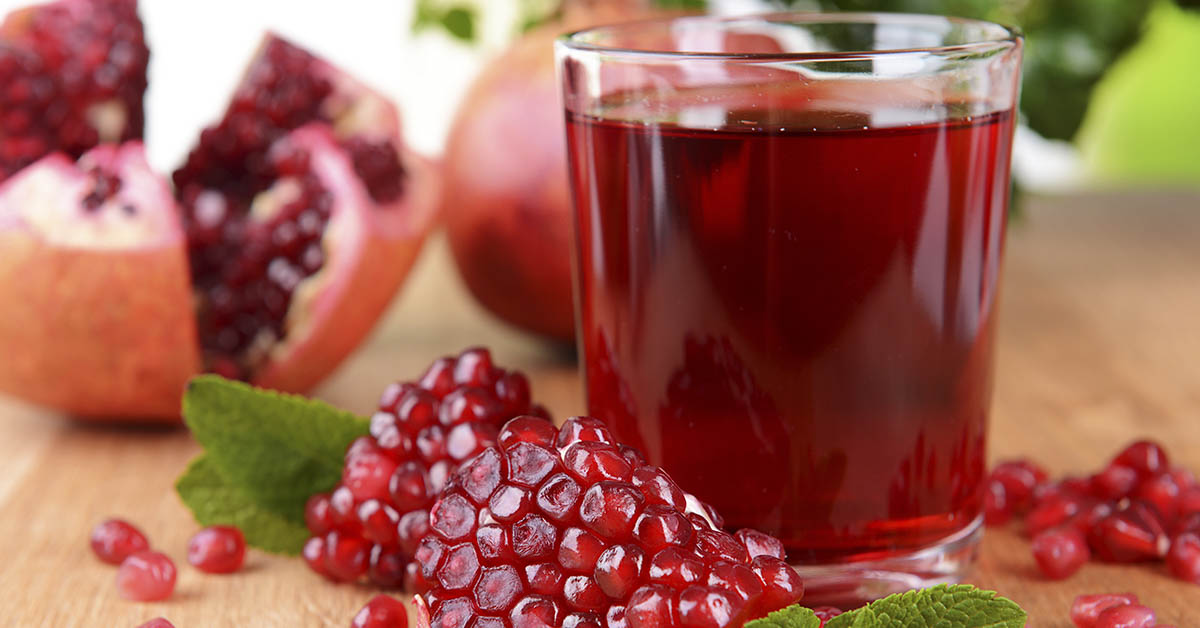Pomegranates are one of the most nutritious fruits out there. They are not only delicious but also have many health benefits. One of the most significant benefits of pomegranate is its ability to support cardiovascular health. These are all the ways that pomegranate supports cardiovascular health that actually have proof to back them up.
12 Benefits of Pomegranate
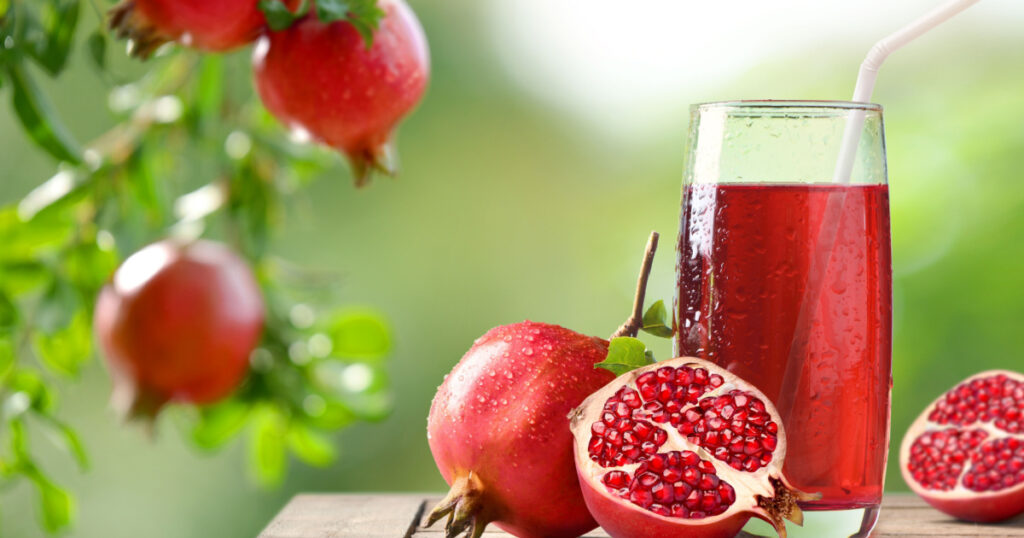
While sometimes a challenge to eat, pomegranate is a delicious fruit with a unique texture. The seeds are fantastic on their own. However, pomegranate lends itself well to many other dishes. In salads, pilafs, on top of soups, and even as a guacamole topper, this sweet, tangy fruit packs a flavor punch. That isn’t even the best thing about it: It is a nutrition powerhouse. This fruit has many health benefits, especially for your heart and cardiovascular system. Here are all the reasons you should include pomegranate as a more regular part of your diet.
Read: Gut Bacteria Linked to Cardiovascular, Other Health Conditions
1. Anti-inflammatory properties
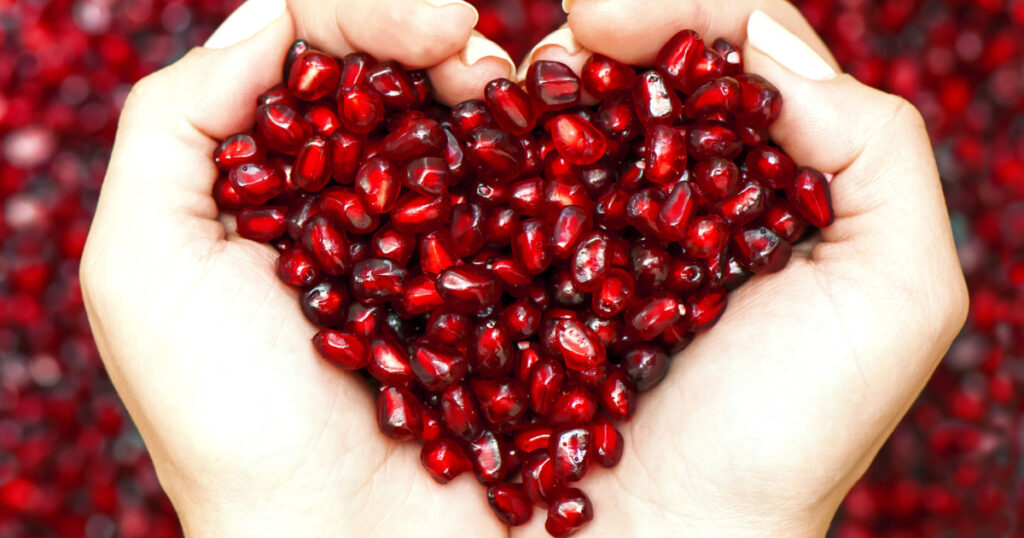
Inflammation is one of the leading causes of cardiovascular disease, so reducing it is crucial in maintaining heart health. Pomegranates are rich in antioxidants and phenolic compounds that help reduce inflammation in the body. Antioxidants in pomegranate include punicalagins, anthocyanins, and hydrolysable tannins. (1)
2. Blood pressure regulation

Pomegranate juice has been shown to have a positive effect on blood pressure. Studies have found that drinking pomegranate juice can help lower both systolic and diastolic blood pressure levels. If you are already on blood pressure-lowering medication, it is important to consult your healthcare provider before taking pomegranate juice. (2)
3. Cholesterol Reduction

Some research suggests that pomegranates also help lower LDL (bad) cholesterol levels. This is essential for maintaining cardiovascular health. However, a 2019 research review found results to be inconclusive. The research team stated that this was in part due to the difficulty of comparing the research, as each one was done differently. (3)
Read: Why You Should Consider Eating Raw Garlic Daily
4. Enhanced Nitric Oxide Production
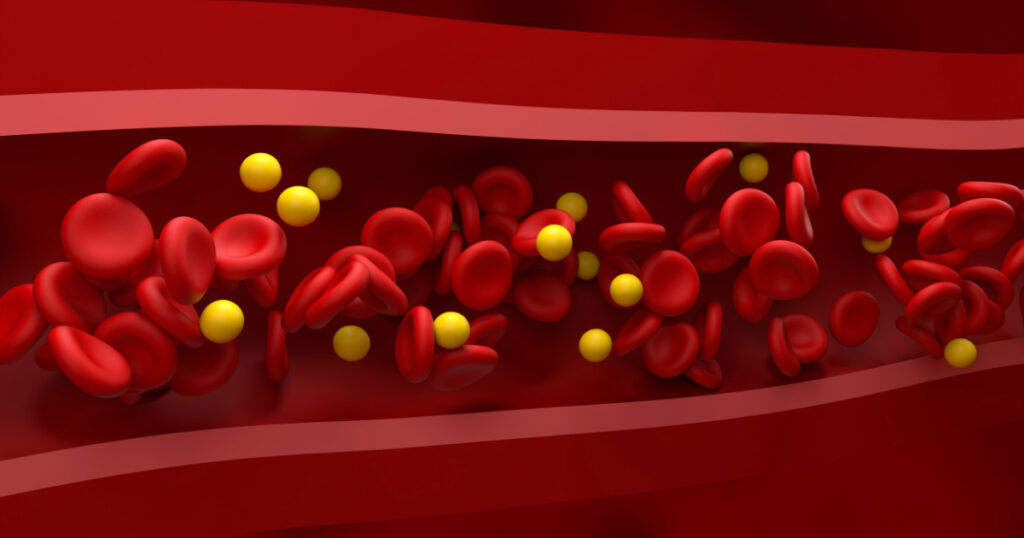
Pomegranate contains nitrates, which help increase the production of nitric oxide in the body. Nitric oxide helps dilate blood vessels, allowing for proper blood flow and pressure regulation. Research shows that pomegranate helps protect nitric oxide from oxidative destruction. This leads to healthier blood vessels. (4)
5. Reduction in Oxidative Stress
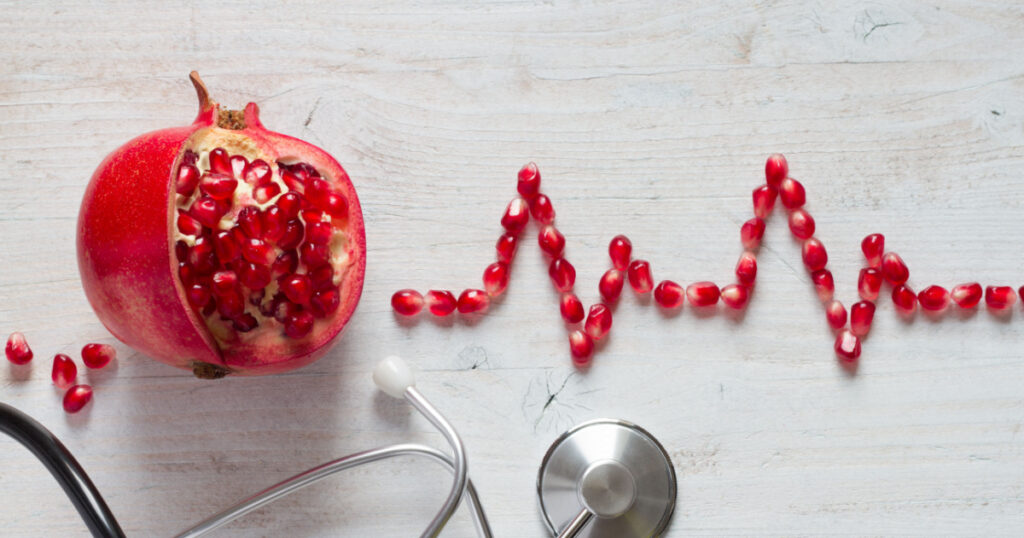
Oxidative stress can lead to inflammation, which is a significant risk factor in cardiovascular disease. Pomegranates contain antioxidants that help reduce oxidative stress in the body. That being said, researchers agree that more research is needed in order to definitively say that pomegranate decreases oxidative stress and by how much. (5)
6. Improved Circulation

With its ability to enhance nitric oxide production, pomegranate can improve circulation in the body. This allows for better oxygenation of vital organs and tissues. Research shows that this could be beneficial for people with varicose veins as well as athletes. (6)
Read: Eating chilies cuts risk of death from heart attack and stroke, study says
7. Antiplatelet Properties

Pomegranate juice has antiplatelet properties. This means it can reduce the risk of blood clots that could harm cardiovascular health. Research shows that this is because it contains hydrolyzed tannins, a polyphenol, which inhibit platelet function. (7)
8. Reduced Atherosclerosis
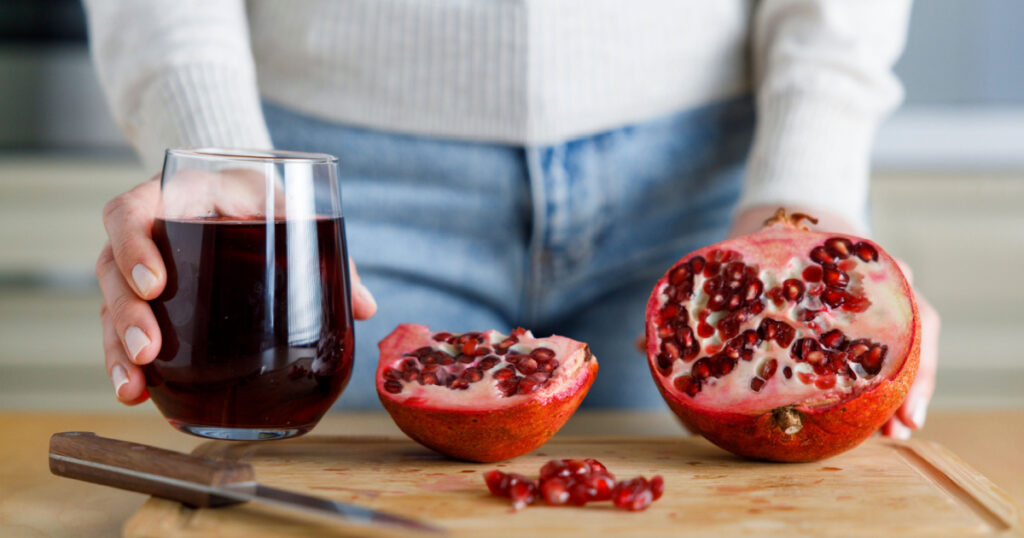
Studies have shown that long-term pomegranate juice consumption can help prevent the buildup of plaque in arteries. This reduces the risk of atherosclerosis and other cardiovascular diseases. While studies do show that pomegranate helps to reduce plaque build-up, be aware of claims that say it can completely unclog arteries. This is not entirely true, and it is not advised to forgo your current medications for pomegranate juice. Please speak with your health care practitioner if you wish to include pomegranate into your heart care regimen. (8)
9. Reduced Risk of Heart Attack

When you combine all of the above benefits, this one comes easily. Reduced atherosclerosis, improved blood flow, decreased platelet function – all of these things will decrease your risk of having a heart attack. Again, this is not a reason to stop taking prescribed medications. Please speak to your health care provider before making any changes.
Read: Eating This Fruit Has Been Associated With Lower Risk Of Cardiovascular And Coronary Heart Disease
10. Lower Risk of Stroke

Pomegranate consumption has been shown to reduce the risk of stroke thanks to its ability to improve circulation and reduce inflammation. On top of that, research also shows that it improves the cognitive outcomes for patients recovering from stroke. More research, of course, is needed. (9)
11. Improved Endothelial Function

Endothelial cells line the blood vessels, and their proper function is essential to maintaining cardiovascular health. Pomegranate has been shown to improve endothelial function, reducing the risk of heart disease. This, again, is because pomegranate has antihypertensive, antiatherogenic, antihyperglycemic, and anti-inflammatory properties. (10)
Read: 6 Everyday Foods to Help Reduce Blood Pressure
12. Improved Exercise Performance

As mentioned earlier, pomegranate has a positive impact on blood flow. This has a direct impact on exercise performance, as oxygen is able to be carried more efficiently to the working muscles. Pomegranate juice has been found to reduce inflammation and muscle damage following intense exercise. This allows you to recover faster so that you can get the most out of each training session and return to training faster after competition. (11)
The Bottom Line
Pomegranate is a powerful fruit that has many benefits for cardiovascular health. From reducing inflammation and blood pressure to improving circulation and endothelial function, its positive impact cannot be overstated. While it should not be seen as a standalone cure for cardiovascular disease, incorporating pomegranate into the diet is an excellent way to support heart health.
Keep Reading: Spirulina: One of the Most Nutrient-Dense Foods on the Planet
Disclaimer: This information is not intended to be a substitute for professional medical advice, diagnosis or treatment and is for information only. Always seek the advice of your physician or another qualified health provider with any questions about your medical condition and/or current medication. Do not disregard professional medical advice or delay seeking advice or treatment because of something you have read here.
Sources
- “Could Pomegranate Juice Help in the Control of Inflammatory Diseases?” Pubmed. Francesca Danesi and Lynnette R Ferguson. August 2017.
- “Pomegranate.” Mount Sinai
- “Effects of pomegranate on lipid profiles: A systematic review of randomised controlled trials.” Pubmed. Zoriah Aziz, et al. January 2020.
- “Pomegranate juice protects nitric oxide against oxidative destruction and enhances the biological actions of nitric oxide.” Pubmed. Louis J Ignarro, et al. September 2006.
- “Pomegranate extract decreases oxidative stress and alleviates mitochondrial impairment by activating AMPK-Nrf2 in hypothalamic paraventricular nucleus of spontaneously hypertensive rats.” Nature. Wenyan Sun, et al. October 2016.
- “Effects of pomegranate extract on blood flow and vessel diameter after high-intensity exercise in young, healthy adults.” NCBI. Erica J. Roelofs, et al. September 2016.
- “Effects of pomegranate juice and extract polyphenols on platelet function.” Pubmed. Teresa Mattiello, et al. April 2009.
- “Pomegranate juice consumption for 3 years by patients with carotid artery stenosis reduces common carotid intima-media thickness, blood pressure and LDL oxidation.” Pubmed. Michael Aviram, et al. June 2004.
- Pubmed
- “Protective Effects of Pomegranate in Endothelial Dysfunction.” Pubmed. Nathalie T B Delgado, et al. 2020.
- “Effects of pomegranate supplementation on exercise performance and post-exercise recovery in healthy adults: a systematic review.” Pubmed. Achraf Ammar, et al. December 2018.
